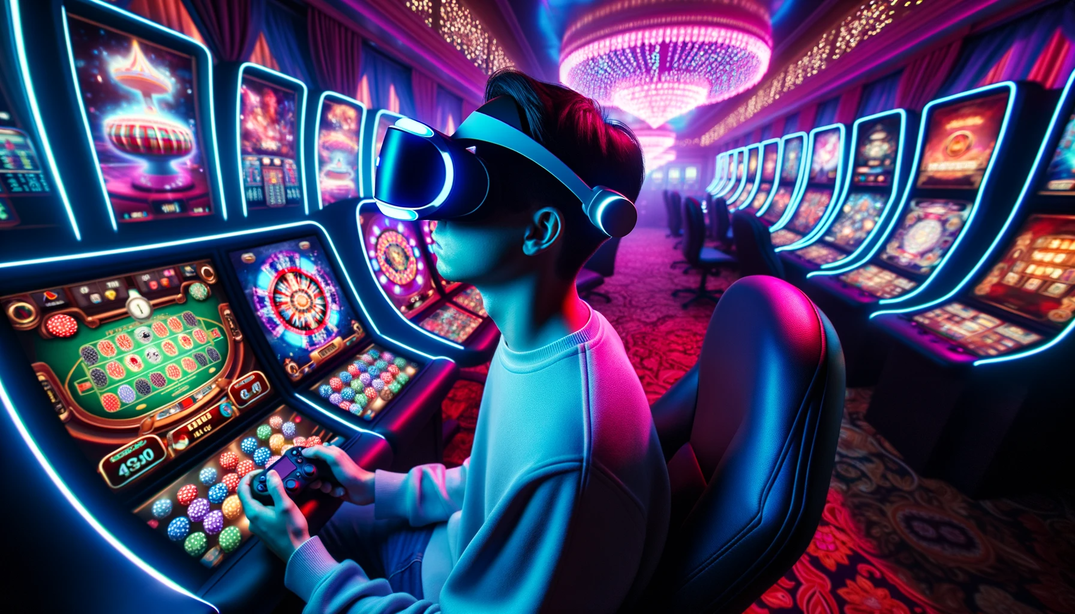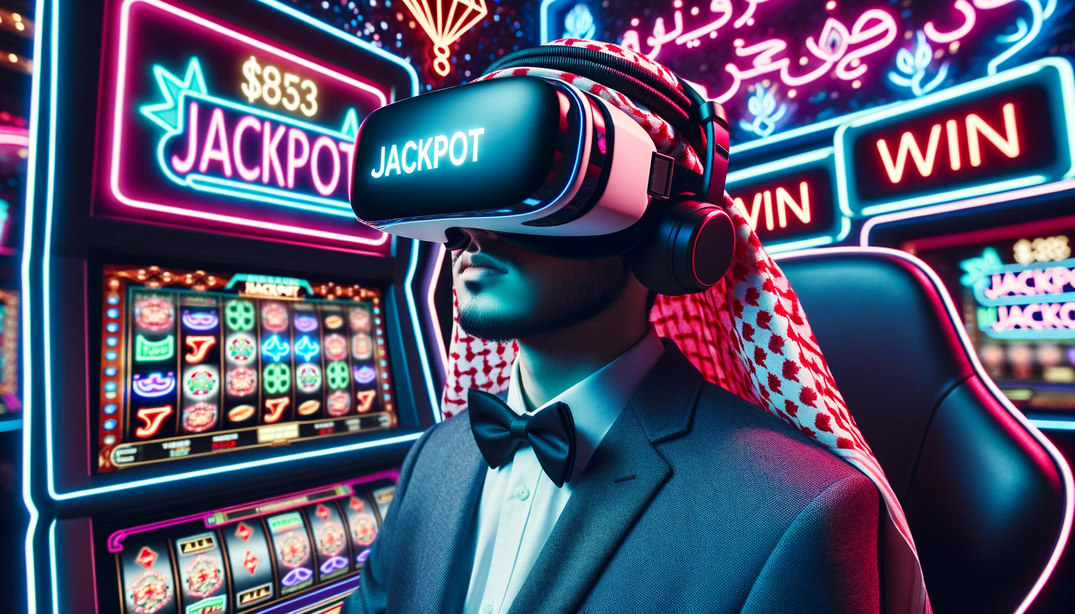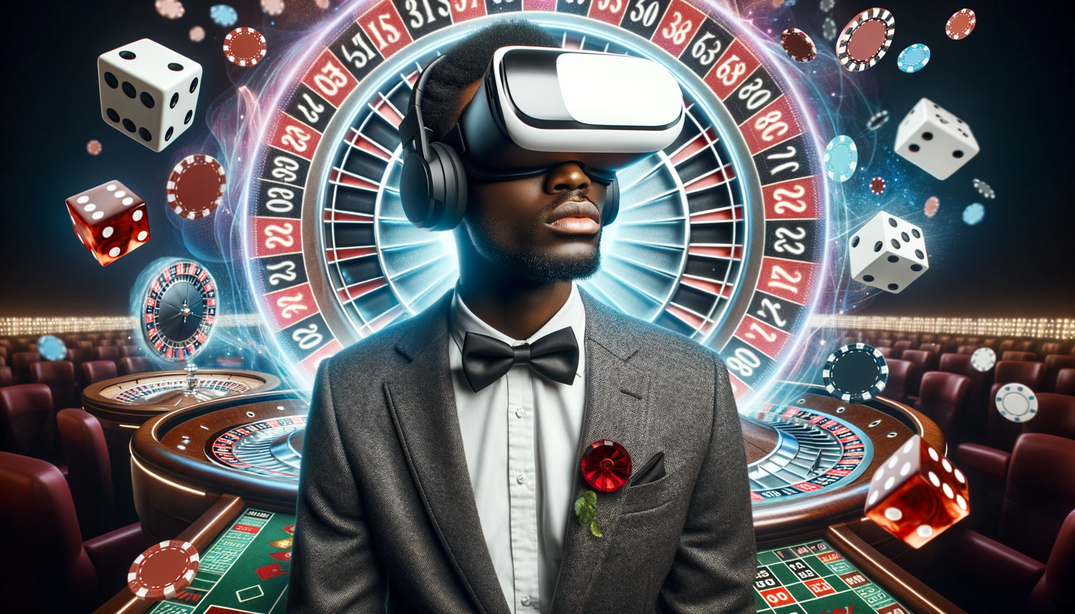Unlike traditional online casinos, which settle for graphics and animations on the screen, virtual online casinos push the boundaries even further. Using VR technology, they create immersive, three-dimensional environments that simulate a real casino. Players can explore the casino, meet other players, and even interact with a live dealer, providing an experience fundamentally different from what traditional online or physical casinos offer. While physical casinos offer an authentic social experience, virtual casinos provide a unique combination of social interaction and digital convenience.
This article will give you a deeper understanding of what virtual online casinos represent, how they are changing the landscape of online gambling, and what opportunities and challenges they bring. Additionally, we will unveil the technological innovations behind this exciting trend and examine the legislative and regulatory aspects that influence its development worldwide. So sit back, put on your VR headset, and join us on a journey into the virtual world of online gambling.
History and Development of Virtual Online Casinos
Online casino games have come a long way since their inception in the mid-1990s. The original online casinos were limited by simple graphics and a limited selection of games, but over time, technology has become more sophisticated, enabling the emergence of much more interactive and visually appealing platforms.
The first online casinos emerged shortly after the release of the first web browsers, providing basic versions of traditional casino games like blackjack and roulette. Over time, and with technological advancement, online casinos have become more sophisticated, offering a wider range of games, better graphics, and a more secure gaming environment. Over the years, new formats of online gambling have also emerged, such as live dealer games, which combine digital games with real dealers.
Development of VR Technology and Its Integration into Online Gambling
The development of virtual reality represented another significant milestone in the evolution of online gambling. VR technology allows users to immerse themselves in a three-dimensional, interactive world, opening doors to much richer and more authentic gambling experiences. The first attempts to integrate VR into online gambling appeared at the beginning of the 21st century when some casinos began experimenting with VR slots and gaming tables.
With the improvement of VR headsets and more powerful computer hardware, virtual online casinos have become a reality. Players can now explore virtual casino spaces, meet other players in a virtual environment, and enjoy games like never before. The integration of VR into online gambling has also enabled the emergence of new, innovative games and gaming formats, further enriching the online gambling industry.
Examples of Existing Virtual Reality Casinos
- SlotsMillion: This is the top-rated virtual reality casino. It collaborates with Lucky VR and has added more than 40 VR casino games to its library. These games were the first of their kind, and the site remains the only casino with real-money VR gambling.
- Jackpot VR: This is a new immersive 3D casino that can be played from a desktop computer or via Oculus Rift. It currently focuses on slots, especially jackpot games.
- PokerStars VR: The PokerStars brand is well-known for its online poker platform. It recently added VR Poker to its platform for a realistic poker playing environment.
Please note that most VR casinos are social sites that do not support real-money betting, with the exception of SlotsMillion. To play games in a VR casino, you need a powerful computer and a VR headset.
Technology Behind Virtual Online Casinos
The evolution of online casinos from a simple 2D graphic environment to the world of virtual reality would not have been possible without the rapid rise in technological innovations. In this section, we focus on the key technological components that have enabled the emergence of virtual online casinos.
VR Headsets and Their Impact on the Gaming Experience
The key technology behind the development of virtual online casinos is VR headsets. These devices allow players to immerse themselves in a three-dimensional virtual world that simulates a real casino. VR headsets, such as Oculus Rift, HTC Vive, or PlayStation VR, provide a high level of immersion thanks to their ability to track the user's head movements and provide spatial sound. This level of immersion transforms the way players perceive and interact with the online casino environment, offering a deeper, more personal gaming experience.
Thanks to VR headsets, players can explore virtual casino spaces, interact with other players and live dealers, all in a 3D environment that mimics the atmosphere of a real casino. This immersive experience is fundamentally different from traditional online casinos and represents a new era in online gambling.
Software for Creating Virtual Casino Games
Software is another crucial element that enables the creation and operation of virtual online casinos. Developers of virtual casino software use advanced tools and platforms, such as Unreal Engine or Unity, to create realistic 3D models, textures, and animations. These platforms also allow the integration of interactive elements, such as virtual gaming tables, slots, and other casino games.
Virtual casino software also includes advanced algorithms and technologies, such as random number generators, to ensure fairness and randomness of game outcomes. Additionally, security protocols and data encryption are essential to ensure the safety and protection of players' personal and financial information.
Advantages and Disadvantages of Virtual Online Casinos
Virtual online casinos bring a new level of experience to the world of gambling. Like any innovation, this one has its pros and cons, which are important to consider when evaluating its overall value for players and the industry.
Advantages
Immersion
- One of the biggest attractions of virtual online casinos is the incredible level of immersion they offer. With VR headsets and sophisticated software, players can experience an authentic casino experience from the comfort of their own home. This means that not only can players play their favorite games, but they can also explore virtual environments, meet others, and even interact with live dealers.
Interactivity
- Virtual casinos offer a higher level of interaction than traditional online platforms. Players can communicate with others in the virtual environment, adding a social dimension to online gambling that was previously reserved only for physical casinos.
Social Aspects
- Making new friends and maintaining social relationships is easier thanks to the communication and interaction options that virtual casinos offer. Players can discuss strategies, share experiences, and enjoy the social aspect of gambling in a virtual setting.
Disadvantages
Technical Requirements
- Entering the world of virtual online casinos requires high-performance hardware and a quality VR headset, which can be financially demanding. Additionally, players need a stable and fast internet connection to fully utilize all the features offered.
Costs
- The costs of the initial investment in the necessary hardware and software can be a barrier for many players. Additionally, some virtual casino games and features may be locked behind paywalls, increasing the overall costs of participation.
Potential Gambling Addiction Issues
- The immersion and interactivity that virtual online casinos offer can be very attractive to some players, which can lead to an increased risk of gambling addiction. Moreover, virtual reality can make it difficult for players to distinguish between the real world and virtual gambling, which can exacerbate issues with controlling play.
The Future of Virtual Online Casinos
With the rapid development of technology and the growing popularity of virtual online casinos, the future of this sector is full of promising possibilities. Players, casino operators, and regulatory authorities can look forward to a range of innovations that can significantly influence how we perceive and interact with the online gambling environment.
Future Technological Development
Advanced VR Technology
- As VR technology continues to develop, the immersion and interactivity offered by virtual online casinos are likely to deepen further. For example, improved motion tracking, haptic feedback, and realistic visual and audio effects can provide even more authentic gaming experiences.
Integration of AR (Augmented Reality)
- Augmented reality (AR) can offer new opportunities for virtual online casinos by allowing players to see and interact with the digital casino environment in their physical space.
Greater Personalization
- In the future, we can expect online casinos to use advanced algorithms and artificial intelligence to provide more personalized experiences for players based on their preferences and gaming history.
New Trends and Innovations
Social Gambling
- Virtual reality can enhance the social aspect of online gambling by allowing players to meet and interact with others in a virtual environment, leading to the creation of social gambling communities.
Innovative Gaming Formats
- With the ability to create realistic 3D environments, developers can experiment with new and innovative gaming formats that would be impossible in traditional online or physical casinos.
Educational Platforms
- Virtual online casinos can also serve as platforms for education and training in the world of gambling, where new players can learn strategies and game rules in a risk-free virtual environment.
Given these potential development trends and innovations, it is clear that virtual online casinos have a bright future ahead, full of endless possibilities. As technology and regulatory environments evolve, we expect virtual online casinos to continue their growth and innovation, providing players with rich and exciting experiences in an environment that bridges the gap between the real and digital world of gambling.

 EN
EN  čeština
čeština  Polski
Polski  Slovenčina
Slovenčina  Русский
Русский  Deutsch
Deutsch  Slovenski
Slovenski  Dutch
Dutch  Svenska
Svenska  Português
Português  Italiano
Italiano  Español
Español  Français
Français  Suomalainen
Suomalainen  Български
Български  Românesc
Românesc  Magyar
Magyar  Eesti
Eesti  Ελληνική
Ελληνική  Latviešu
Latviešu  Lietuvių
Lietuvių  やまと
やまと  中国
中国  Dansk
Dansk  Türkçe
Türkçe  ID
ID  Українська
Українська  한국어
한국어  Norsk
Norsk  Peter Sommer
Peter Sommer 









You have to be logged in to add a comment